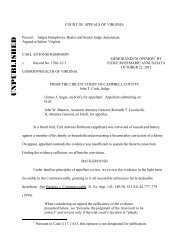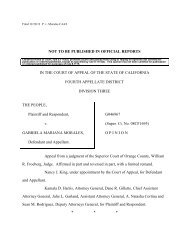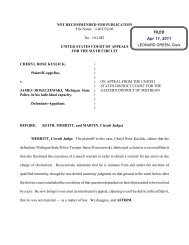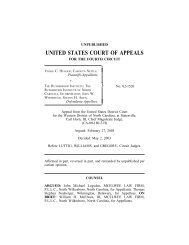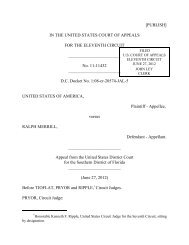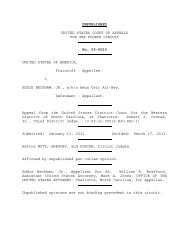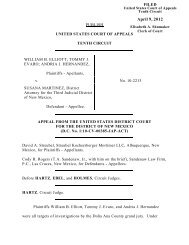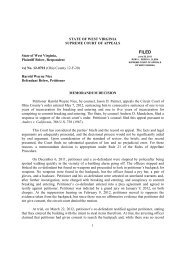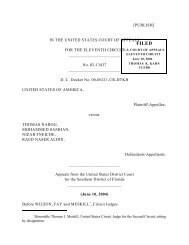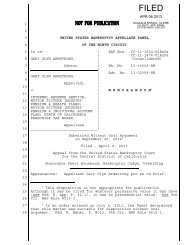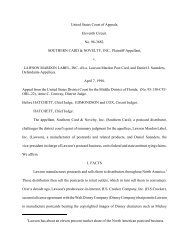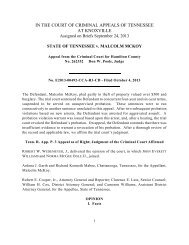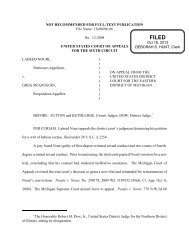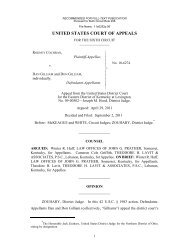USA v. Robert Dale Holloway - Court of Appeals - 11th Circuit
USA v. Robert Dale Holloway - Court of Appeals - 11th Circuit
USA v. Robert Dale Holloway - Court of Appeals - 11th Circuit
You also want an ePaper? Increase the reach of your titles
YUMPU automatically turns print PDFs into web optimized ePapers that Google loves.
This result makes sense. Not surprisingly, 911 calls are the predominant<br />
means <strong>of</strong> communicating emergency situations. 6 United States v. Richardson, 208<br />
F.3d 626, 630 (7th Cir. 2000) (“A 911 call is one <strong>of</strong> the most common — and<br />
universally recognized — means through which police and other emergency<br />
personnel learn that there is someone in a dangerous situation who urgently needs<br />
help.”). Such calls are distinctive in that they concern contemporaneous<br />
emergency events, not general criminal behavior. Additionally, the exigencies <strong>of</strong><br />
emergency situations <strong>of</strong>ten limit the ability <strong>of</strong> a caller to convey extraneous details,<br />
such as the identifying information. 7<br />
Furthermore, some callers, particularly<br />
neighbors, may be understandably reticent to give identifying information for fear<br />
<strong>of</strong> retaliation or danger. Thus, the fact that a 911 caller chooses — or is forced —<br />
6 Many emergency searches arise from information provided by 911 callers.<br />
See, e.g., United States v. Richardson, 208 F.3d 626 (7th Cir. 2000) (upholding<br />
warrantless search <strong>of</strong> apartment based on 911 call reporting woman had been raped<br />
and murdered in apartment); United States v. Cunningham, 133 F.3d 1070 (8th Cir.<br />
1998) (upholding search arising from 911 call indicating occupant <strong>of</strong> home was<br />
being held against her will); United States v. Gwinn, 46 F. Supp. 2d 479 (S.D.W.<br />
Va. 1999) (upholding warrantless search <strong>of</strong> mobile home where police responded<br />
to emergency call stating man was threatening someone with gun); United States v.<br />
Guarente, 810 F. Supp. 350 (D. Me. 1993) (upholding warrantless entry into<br />
residence based on 911 call about domestic dispute involving weapon).<br />
7 Either injury, the sheer need to seek shelter or<br />
cover, or simply the exigencies <strong>of</strong> the moment, may very<br />
well prevent an individual placing a 911 call from<br />
providing standard identifying information.<br />
20



